Corby: 'Devastating' steel works closure remembered 40 years on
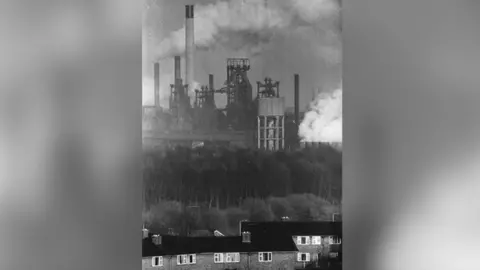 Getty Images
Getty ImagesThe "devastating" impact the closure a British Steel works had on a town has been remembered almost four decades on.
Steel worker Dougie Reid campaigned to save jobs after the company announced the Corby works' closure 40 years ago this month.
More than 10,000 people were made redundant and the Northamptonshire town's unemployment level rose to 30%.
Council archivist Billy Daziel said he believed "it is only in the last 10 years" that the town had recovered.
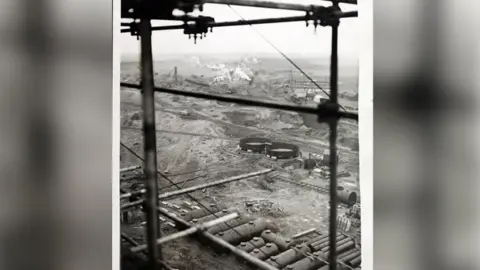 Getty Images
Getty Images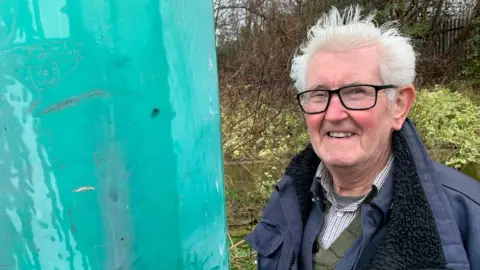
Corby's steel and iron industry expanded in the 1930s, with the construction of Stewarts and Lloyds' Steel Works.
The town's population grew to 10,000 with the works - Europe's largest - employing 4,000 people.
By 1979, Corby had between 55,000 and 60,000 residents, said Mr Daziel, Corby Borough Council's heritage development worker.
In February 1979, British Steel announced plans to close the works, which were nationalised in 1967.
It said the steel market was flat, too much steel was produced in Britain and described the Corby works as "uncompetitive".
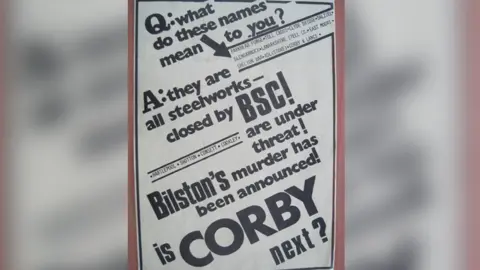 Corby Borough Council
Corby Borough Council Corby Borough Council
Corby Borough CouncilMr Reid was one of many steel workers who moved to Corby from Scotland, earning the town the nickname "little Scotland".
He described how the sky above the town "lit up, red with the reflection from the furnaces" - and helped lead the campaign against the closure.
The works' demise was "a sad, sad day" that forced him to move away to find work, he said.
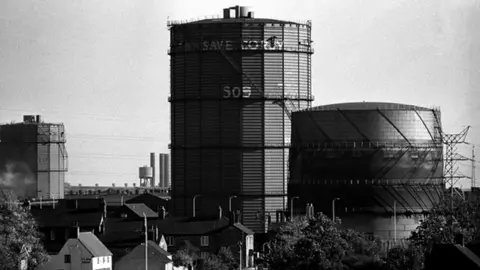 PA
PA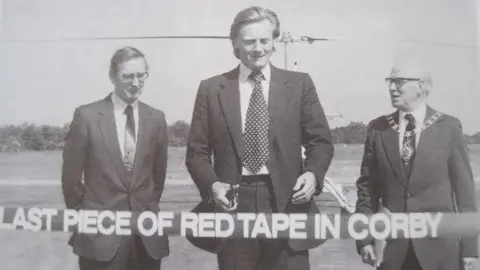 Corby Borough Council
Corby Borough CouncilMr Daziel said the sharp rise in unemployment had a "dramatic" impact on the town
He said it "went from a prosperous, stable town to a very high unemployment black spot with little opportunity".
The industry continues in the town, with Tata Steel manufacturing about 250,000 tonnes per year of "thin-wall welded tube from steel strip" and employing about 500 people.
The £48m Corby Cube - a council office, library, theatre and register office - was completed in 2015 and is one of the town's regeneration projects.
Mr Reid, who returned to the town two years ago, said: "People are now in jobs, the ground the works used to be on are now full of fresh factories.
"Corby has really rejuvenated."

Corbei: A town's history
- Evidence of settlement as far back as the Bronze Age
- Invaded in the 8th Century by Danish Viking settlers
- Previously named Corbei, from "The By of Kori"
- Always known as an iron-working region - with specific mention in the 1086 Domesday Book - and had its own ironstone works in 1910, before Stewarts & Lloyds took it over in 1920

